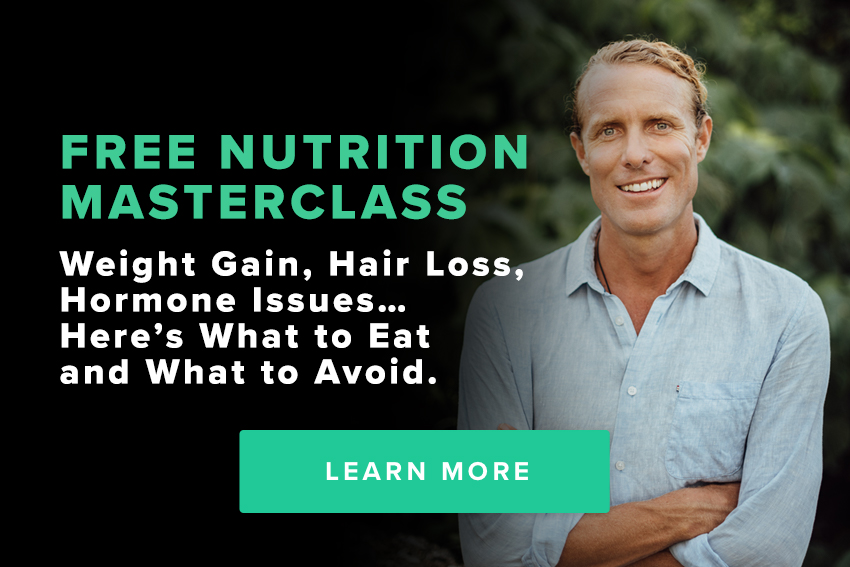Are These "Health Products" Really Healthy?
With such a great demand for healthy food options, the food and beverage industry are serving up so many new ideas and products all the time with the ‘healthy’ banner slapped on the packaging that it can be difficult to understand whether or not you’re looking at a short-lived fad or a great long-term addition to your nutrition plan.
From low-fat, sugar-free, gluten-free, protein bars, detox teas, veggie chips to you name it, we’ve seen ideas and promotions come and go, being promoted as the next greatest thing and then shortly re-labeled the exact opposite. In this article, we hope to debunk some of the myths in the health-food industry and highlight the products that have stood the test of time.
Detox Teas
You might have seen them on infomercials or by a gossip magazine newsstand, but despite their notoriety, do detox teas actually work? Their laundry list of benefits includes weight loss, strengthening your immune system, radiant skin, improved energy levels, improved digestion and gut health, better mental clarity, and energy - to name a few. When put to the test, store-bought products like The Lemon Detox Diet and Green tea supplements, were more often than not, disappointing… and their results… short-lived. Instead, we recommend detoxing your body naturally! Check out our article here, for more sure-fire ways to reinvigorate and re-energize your body.
Verdict: Waste of time
Vegan Meat Alternatives vs Real Meat
Recent studies provided by the International Agency of Cancer identify a direct correlation between red-meat (including pork, beef, and lamb) and that of cancer-causing antibodies. This has seen a shift in consumers who are seeking healthy alternatives to satiate their appetite for protein. Vegan meat alternatives are not only packed with the right nutrients (without the unhealthy fats) but help to reduce our carbon footprint at the same time. Check out our Plant-Based Meats on the Rise article on how to choose the right product.
Verdict: Homemade is best or find a brand that uses wholefood ingredients.
Dairy Milk Alternatives
It seems with every season, there is a new, sensational alternative burgeoning health benefits that it’s counterparts lacked. But how healthy are our milk-free alternatives? In our recent article around our alternative of choice (Oat Milk) we discovered that many milks (such as almond, rice, and soy) include many unnecessary fillers. As a solution, why not make your own? Check out our Steel Cut Oat recipe here.
Verdict: Choose unsweetened, with the least amount of ingredients!
Butter and Margarine… Is There Really Any Difference?
Today the butter-versus-margarine debate is really a non-issue. The truth is, there never was any good evidence that using margarine instead of butter cut the chances of having a heart attack or developing heart disease. So what else do we put on our toast and potatoes? Olive oil-based spreads provide a healthier alternative that contains beneficial mono and polyunsaturated fats.
Verdict: Stay away from man-made Margarine.
Breakfast Cereals
We’ve seen sports stars sponsor them and weight loss companies endorse them but we’ve also seen loads of sugar and marshmallows in them, which is why it’s no surprise that breakfast cereals get a wrap for being unhealthy. While the turn of the aughts saw some healthier options on the menu, it doesn’t change the fact that breakfast cereals are still processed foods. Which, as we know, we can benefit from having less of in our diets. Instead, why not try putting in the extra 10-minutes and making yourself a home-made granola or muesli bowl?
Verdict: Leave it on the supermarket shelf.
Veggie Chips
As the saying goes, if it’s too good to be true… it generally is. The same goes for veggie chips. While you might think you’re eating a handful of vegetables, the bag of ‘healthy’ crisps might only be 65% vegetables and the rest being oil and salt. This is comparable to that of a traditional crisp packet and generally contains sunflower oil which may sound nice but is actually bad for your health. This snack certainly wouldn’t count towards your 2 fruit and 5 veg.
Verdict: Fresh is best!
Salad Dressings
As you probably guessed, most store-bought salad dressings are a master of disguise. Many are packed with artificial flavors, colorings, and sodium-rich preservatives, which defeats the purpose of eating a salad. When spicing up your leafy greens, why not try making your own? Check out our homemade healthy salad dressing recipes here!
Verdict: Homemade is best.
We've been digging deep into more products, there was too many for one article so we will be following up with another article on this in the coming weeks! What would you like to see on the list? Let us know in the comments below and we will be sure to include these!
Stay tuned for Part 2!
Discover how to eat your medicine to heal your gut, eliminate bloating, skin issues and hair loss as I share seven nutrition principles in this free masterclass. Running for a limited time only.








